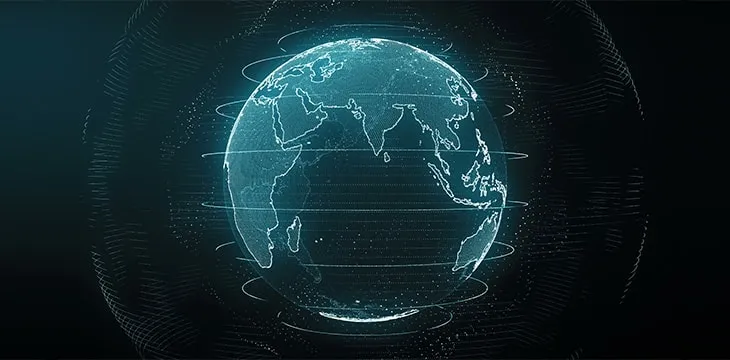|
Getting your Trinity Audio player ready...
|
More global giants continue to adopt the blockchain, setting the stage for what could be a momentous year in 2020 for the technology. Asia has continued to set the pace, with China, South Korea and India leading the pack.
This week, China’s internet giant ByteDance launched a new partnership which will develop blockchain and AI solutions for its clients. Known mainly as the owner of video sharing app TikTok, ByteDance partnered with a state media conglomerate to launch a new company named Pengpai Audiovisual Technology Co.
Also in China, the country’s judiciary revealed this week that the smart courts system has been quite a success. The courts are powered by blockchain and other technologies such as AI and cloud computing. According to a recent report, these smart courts settled over 3 million cases between March and October this year.
The race for a national digital currency is still on course, with Iran revealing its intentions this week. The country’s president proposed the development of a Muslim crypto this week, aimed at checking the U.S. economic dominance. He called on Muslim nations to come together and back this crypto as they seek to strengthen financial and trade cooperation.
This week, Thailand announced that it would apply blockchain in the issuance of its electronic visa on arrival. The application of the technology will speed up the process, while enhancing transparency and security.
Over in East Asia, a leading telecom operator announced the launch of a blockchain-based currency to revitalize the local economy. South Korea’s largest telecom company KT partnered with Busan city to launch the currency, which will be known as Dongbaekjeon. Busan, South Korea’s second largest city after Seoul, believes the currency will “revitalize its local economy and ease the management burden of small business.”
In South Asia, one of the largest consultancy companies released a blockchain development kit this week, aiming to accelerate the development of decentralized applications. Tata Consultancy Services, which is the largest Indian company by market capitalization, launched the kit to allow enterprises to build and deploy dApps in a simplified way. The company claims that developers who use their kit write smart contracts 40% faster than their peers.
In Hong Kong, the United Nations is turning to blockchain to prevent the exploitation of migrant workers. Through the International Organization for Migration, the U.N. launched a blockchain tool that will introduce transparency in the immigration sector. Hong Kong is home to nearly 400,000 migrants and over half this number has been exploited in one way or another.
Over in the U.S., chipmaker AMD this week joined a blockchain alliance which aims at promoting the technology in the gaming industry. AMD becomes the first major player to join the Blockchain Game Alliance. Still in the U.S., a Gartner report this week revealed that over 75% of major companies are integrating blockchain and IoT in their operations. According to the report, transparency and security are some of the key reasons for the continued uptake.
The week also saw some legal enforcement, with two Russian crypto miners charged for using government resources to mine. This came just a month after a Russian nuclear physicist had been sentenced to three years in jail for a similar crime.

 07-15-2025
07-15-2025 





